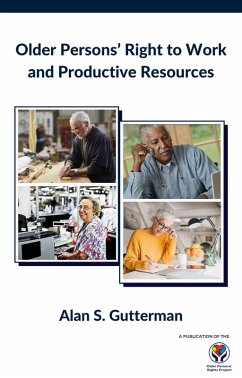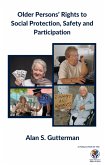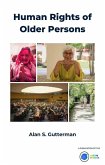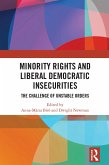Older persons are entitled to all of the recognized civil, political, economic, social and cultural rights, including the right to work, since such rights are universal and thus belong to all human beings. There is now a substantial body of international standards and principles relating to the human rights of older persons including international instruments, general comments and recommendations by UN Treaty Bodies and ILO, UN policy instruments, UN resolutions and UN reports from the Secretary-General, Independent Experts and the OHCHR. However, studies of the implementation and impact of broad initiatives have concluded that their goals have largely failed to be met and that little progress has been made in the development of national plans on aging and older persons continued to face challenges that undermined their social, economic and cultural participation including income security and access to labor markets and social protection. The UN High Commissioner for Human Rights has noted that older workers are often devalued by prospective employers as being unproductive, slower and more prone to disease, unfit to learn and a burden to highly technological work environments. In addition, while employers have been increasing their focus on diversity, equity and inclusion in their workforce, only a small percentage of them have explicitly included age in their recruiting strategies. Older persons also face challenges in launching their own productive activities due to the denial of reasonable access to necessary resources such as loans, insurance, land or rent on the basis of age. Older persons faced with barriers to accessing work and productive resources are at higher risk of economic insecurity and are often forced to endure extreme poverty.
Dieser Download kann aus rechtlichen Gründen nur mit Rechnungsadresse in A, B, CY, CZ, D, DK, EW, E, FIN, F, GR, H, IRL, I, LT, L, LR, M, NL, PL, P, R, S, SLO, SK ausgeliefert werden.









